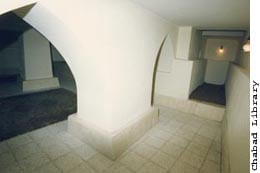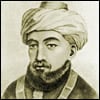
Rambam reached the peak of his professional reputation as a doctor when he was appointed to the staff of the court of Saladin as royal physician. He was charged with personally supervising the health of the Grand Vizier Alfadhel, as well as members of the royal family. He devoted himself wholeheartedly and tirelessly to his profession, and his fame as a conscientious, skilled, compassionate physician radiated far and wide. His reputation spread to such an extent that King Richard the Lionhearted of England sought his medical services and offered him the position as his personal physician. Rambam declined the offer, preferring to remain in Egypt where he had been appointed Nagid (Supreme Head) of all Egyptian Jewry, employing his dignified position to protect his coreligionists throughout the Islamic world.
Over fifteen treatises on the theory and practice of medicine have been attributed to him. Among these are a treatise on poisons and their antidotes which was used throughout the Middle Ages, a discourse on asthma, and a list of hygienic regulations which would lead to a healthful life. His rabbinic works, too, are replete with references to medicine and its practice and numerous rules for healthful physical well-being.
Oath for Physicians
There is an ancient physicians oath which articulates the physicians deeply felt obligation to heal the sick. Rambam, as a devoted physician and guide for the perplexed, composed an oath for all physicians, Jews and gentiles1, which expresses the profound obligation of the physician to heal with devotion and humility, and a prayer for G‑d's assistance and intervention.
The oath attributed to Rambam reads:
O G‑d, Thou has formed the body of man with infinite goodness; Thou has united in him innumerable forces incessantly at work like so many instruments so as to preserve in its entirety this beautiful house containing his immortal soul, and these forces act with all the order, concord, and harmony imaginable. But if weakness or violent passion disturb this harmony, these forces act against one another and the body returns to the dust whence it came. Thou sendest then to man Thy messengers, the diseases which announce the approach of danger, and bid him prepare to overcome them. The Eternal Providence has appointed me to, watch over the life and health of Thy creatures. May the love of my art actuate me at all times, may neither avarice, or miserliness, nor the thirst for glory or a great reputation engage my mind; for, enemies of truth and philanthropy, they could easily deceive me and make me forgetful of my lofty aim of doing good to Thy children. Endow me with strength of heart and mind, so that both may be ready to serve the rich and the poor, the good and the wicked, friend and enemy, and that I may never see in the patient anything else but a fellow creature in pain.
If physicians more learned than I wish to counsel me, inspire me with confidence in and obedience toward the recognition of them, for the study of the science is great. It is not given to one alone to see all that others see. May I be moderate in everything except in the knowledge of this science; so far as it is concerned, may I be insatiable; grant me the strength and opportunity always to correct what I have acquired, always to extend its domain; for knowledge is boundless and the spirit of man can also extend infinitely, daily to enrich itself with new acquirements. Today he can discover his errors of yesterday, and tomorrow he may obtain new light on what he thinks himself sure of today.
G‑d, Thou hast appointed me to watch over the life and death of Thy creatures: here am I ready for my vocation2.
The art of healing was to Rambam a sacred calling, which he practiced with selfless devotion. He was concerned with the welfare of all who needed his care, treating Jew and non-Jew, rich and poor, nobleman and peasant alike.
Rambam's Demise

The last years of his life were devoted to unceasing work as a physician, to revising and adding to his many writings, to acting as Chief Rabbi of Egypt and spiritual leader of the far-flung Jewish communities who sought his sage counsel. The years of weariness took their toll and he suffered from various ailments and weaknesses until on the twentieth of Tevet, in 1204, close to seventy years of age, he passed away. He was mourned by Jewry the world over. In Fostat, both Jews and Muslims publicly mourned him for three days. In Jerusalem, special funeral services were held and a general fast was declared. In the synagogues, the Scriptural passages dealing with the penalties for transgressing G‑d's commandments (the Tochacha) and the narrative in the Book of Samuel describing the capture of the Ark by the Philistines, which concludes with the verse, "The glory is departed from Israel, for the Ark of G‑d is taken," were read. He was interred in the holy city of Tiberias, where to this day thousands of Jews come to pray and meditate upon the life and teachings of this "guide for the perplexed" of all generations, of whom it is said, "From Moshe to Moshe, there arose none like Moshe."








Join the Discussion